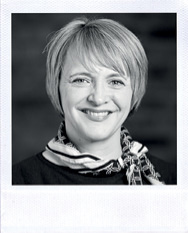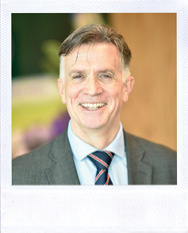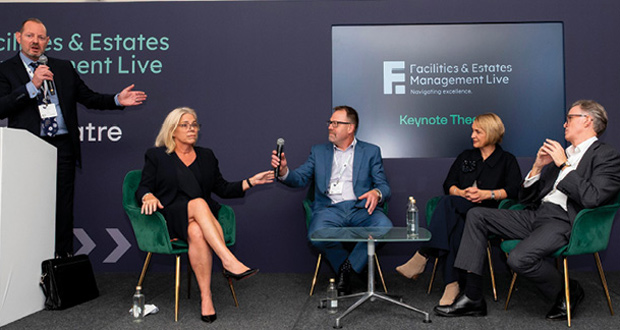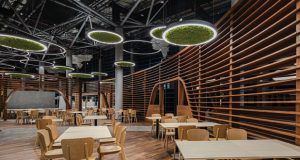 THE CUSTOMER EXPERIENCE LEADER’S VIEW
THE CUSTOMER EXPERIENCE LEADER’S VIEW
SIOBHAN JARED
“My current challenge is in trying to get the landlord and owner of properties to see the benefit of the strategic partnership. My passion lies in driving customer experience through the industry, and it feels like sometimes our facility management company are a little bit on the back foot in working with landlords’ needs to attract people back into the office. FM has a role to play in being much more proactive and coming forward to say ‘this is how we can do it’. I’ve got a meeting to review their scope of services so we’re doing the work to try and encourage a different culture. But I won’t lie, it’s hard work because there’s an awful lot of landlords that don’t want to work that way. It’s quite command and control as an industry, which I find quite challenging to change.”
 THE FM PRACTITIONER’S VIEW
THE FM PRACTITIONER’S VIEW
RICHARD WILSON
“I think the big issue we’ve all got is the ESG agenda and FMs have an integral part to play in its delivery and setting the future of that. Most organisations can’t do it without FMs and while David brought up the attempt to rebrand FM as workplace managers – that was a waste of time, because it feels it’s for people that don’t know FM. Workplace management, to me, is just one of the environments we work in. I personally prefer the phrase; built environment in that we operate and maintain and care for the built environment. I also don’t quite understand this obsession with our status and our chartered status and our seat in the boardroom. We’ve got nothing to prove, we’ve already shown how integral we are to businesses, to hospitalities, to workplaces. I appreciate we may be moving away from metropolitan centres, but we are adaptive and flexible as an industry. We just have a slightly different emphasis.”
DE: “Does the panel think that we are offering a strategic value proposition, or are we operating in the background shadows and still just fixing the boilers?”
SJ: “There is so much richness in what facilities managers and teams do. We talked earlier about being proactive and I think an awful lot of decision makers working on the strategic value of their organisations need [FM] experts to share their ideas and come forward. Yes, there’s rigor around procurement, but that isn’t what drives values in partnerships.”
DW: “The back foot concept is quite true, but it’s because we’re not bold enough. If you listen to the topics we talk about, it’s often the same ones we’ve been talking about for 10 years. We need to be bolder. We need to take risks. We need to be more courageous. We have some super intelligent people in this industry, we’re hiring psychologists, we’re hiring data analysts, and these didn’t even exist in FM five years ago. But we need to start taking a few more risks. So, what if the office goes away? Retail did not die. It just got transformed. We must be able to adapt, which means we must take risks. Let’s go out there and make a difference. Let’s be agitators. Let’s look at things that we don’t want to talk about. Nobody wants to talk about, what if the office dies, because we’re all employed by that but what if it does die? What are we going to do? Then we must adapt. We start looking at ways we can serve people in their home office. We start to change our product mix and our service mix. I think all we do is sit around and wait, and we cannot wait any longer.”
JH: “I understand and accept that it becomes a boring discussion that we keep talking about our own importance, but we need to take more radical steps to impact, to demonstrate how we can make the end client more successful. That means taking a workplace environment and understanding our role in supporting office working, diverse working and private working. If we find the biggest issue for clients is how do they attract and retain the best staff, what can we do to impact that? That is the practical argument that I’d like to see taken forward.”
RW: “What is wrong with being good at cleaning buildings and changing light bulbs? That is the building blocks of what we do. We should be good at the basic hard and soft services and then develop offerings that cover the rest of it.”
SJ: “For me, facility management is less about the job titles, it’s more about the development of the people with the skills they now need. What we’ve got to do is equip our teams with the different skills that are needed. And I think that’s probably where the industry can start to progress.”





